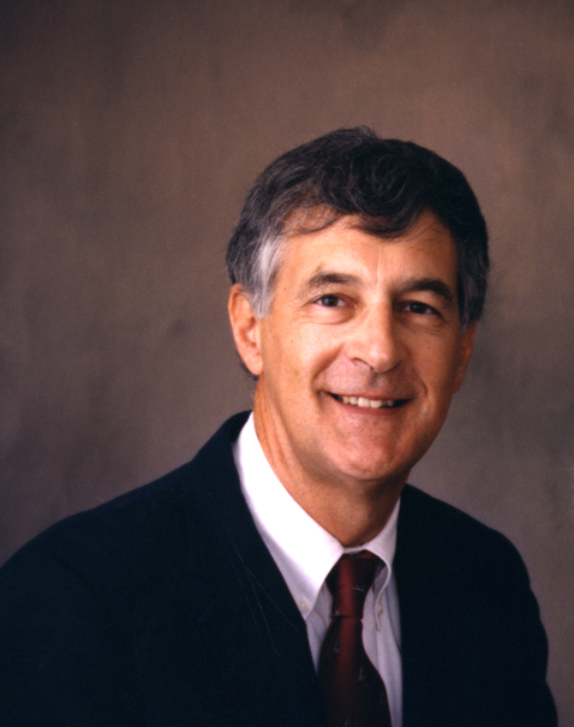Stanford poetry scholar, humanist Michael Pennock Predmore dies at 79
Michael P. Predmore, a professor emeritus who taught at Stanford for over 30 years, inspired generations of students. He was known for his analysis of Juan Ramón Jiménez’s poems.
A dedicated teacher who mentored students until his final days, Michael P. Predmore, Stanford professor emeritus of Iberian and Latin American Cultures and former chairman of his department, died at his home on Dec. 23 of cancer. He was 79.
As a scholar of Spanish lyric poetry of the 19th and 20th centuries, Predmore, who taught at Stanford for over 30 years, is best known for his expertise on the work of Nobel laureate Juan Ramón Jiménez and poet Antonio Machado. His dedication to the study of Spanish and Latin American authors granted him numerous honors, including the Medal of the Order of Isabella the Catholic, one of the Spanish government’s highest awards for civilians.
To his colleagues, friends and family members, Predmore was an honest, ethical man, a model of collaboration and consciousness who put others before himself.
“He was one of the warmest, kindest and gentlest human beings,” his son Michael K. Predmore said.
A devoted scholar and mentor
Originally from New Brunswick, New Jersey, Predmore received his bachelor’s degree from Swarthmore College in 1959, where he was captain of the tennis team. He earned his master’s degree and doctorate from the University of Wisconsin–Madison by 1965. Before joining Stanford in 1986, Predmore served on the faculty at the University of Washington for 21 years.
At Stanford, Predmore led the Department of Spanish and Portuguese as its chairman from 1987 to 1994. He helped diversify the department and created an environment of collegiality and fairness among its faculty, researchers and staff, colleagues said. He became an emeritus professor in the fall of 2015.
One of Predmore’s most significant contributions to poetic scholarship was his study of Juan Ramón Jiménez’s unique use of symbolism. Predmore decoded sets of symbols, called a hermetic symbolic system, that are only fully interpretable by reading entire collections of Jiménez’s work, representing a major innovation of Spanish modernist poetry.
“He argued for reading the poetry of a particular author in its entirety and understating how one word or one concept accrued meaning through its repetition,” said Lisa Surwillo, associate professor of Iberian and Latin American cultures. “He argued that words can accrue multiple meanings and aren’t necessarily meant to reflect a particular historic moment because of the time they were written in.”
Predmore’s analysis of the work of 19th- and 20th-century Spanish and Latin American authors received numerous awards both domestically and abroad. Among the most notable are the Fulbright and Guggenheim fellowships, the American Council of Learned Societies fellowship, and the Perejil de Plata, the highest distinction awarded by the Juan Ramón Jiménez Foundation.
“We lost one of the best people I have known: a kind, most honest and generous person, a perfect father, a devoted husband, a true and unconditional friend,” said Maria-Paz Haro, professor emeritus of Spanish and Portuguese, who worked with Predmore and was his close friend and tennis partner. “Michael Predmore was not only an excellent and inspiring professor and an example of scholarly achievement, but a perfect mentor.”
Surwillo said she quickly found a supportive mentor in Predmore when she joined Stanford.
“He helped me grow as an interdisciplinary scholar, and he was incredibly supportive of the work that I did, always reading all of it,” Surwillo said. “He was the type of person who was always taking care of everybody. Even when he finally retired, he was still on seven dissertation committees, constantly helping his students and colleagues.”
His son, who also became a scholar of Spanish literature, said his father read poetry to him from a young age, inspiring him to follow in his footsteps.
“The more I saw what he did and how much he enjoyed it, I gravitated towards that,” he said, adding that his father became an invaluable mentor to him. “I wouldn’t be the person that I am today without him.”
An inspiring figure
Predmore’s passion for literature and poetry inspired generations of students. He was awarded the Dean’s Distinguished Teaching Award from the School of Humanities and Sciences in 2013.
His poetry readings and interpretations led to lively discussions during his regular 8 a.m. class, despite its early start. Students always seemed to line up near Predmore’s office to talk to him more after class, Surwillo said.
Predmore remained a dedicated teacher throughout his life, continuing to write letters of recommendation for former students and to advise them over the phone until his last days.
Predmore was also a committed human rights, peace and social justice advocate. He encouraged students to get involved beyond the classroom. In the 1960s, he opposed the Vietnam War and often drove from Seattle to the Bay Area to participate in the anti-war marches organized in the region. He actively supported the civil rights movement, women’s rights, workers’ rights, Native American rights, Chicano and Latino issues and environmental activism.
He helped free Chilean political prisoners during the Pinochet regime in Chile and assisted Spain’s political prisoners and their families during the Franco regime. He was also an advocate for Argentinian, Honduran, Salvadoran, Guatemalan and U.S. political prisoners. According to his wife, while Predmore participated in the Stanford Bing Overseas Studies Program in Chile in 2001, some of the political prisoners he had helped to free decades earlier came to visit him.
Predmore loved sports and was an avid tennis player. He also enjoyed swimming, hiking and skiing.
Predmore is survived by his wife, Izvara Predmore, his son, Michael, brothers Richard L. and James R. Predmore, and their families.
Donations in Predmore’s memory can be made to the Peninsula Peace and Justice Center, the Southern Poverty Law Center, the Center for Constitutional Rights of New York and Democracy Now! news organization.

